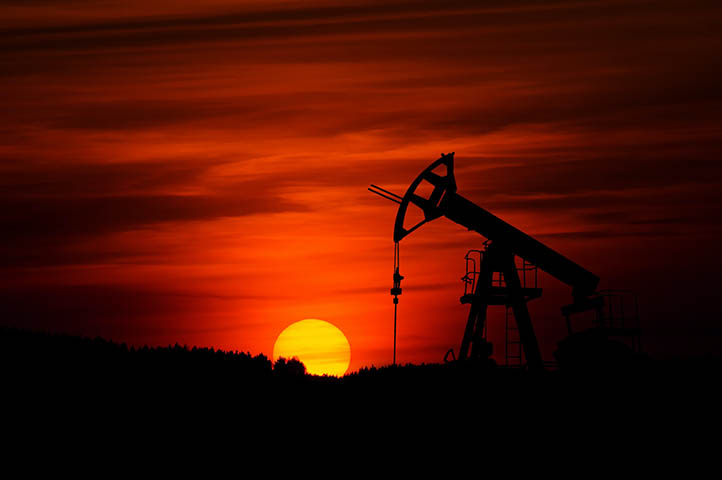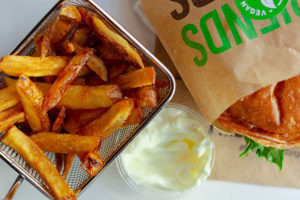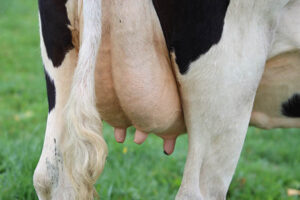Have you ever considered how much oil goes into your food? No, not olive oil or corn oil or even palm oil. Have you ever considered how much crude oil – how much petroleum – we’re using to feed ourselves?
It’s no small matter. According to Cornell University’s David Pimentel, we North Americans use an average of 10 calories of fossil fuel to produce one calorie of food energy. Feeding just one of us takes about 1600 liters of fossil fuel each year! That’s more than many of us use driving.
Where does all that oil go? Well, surprisingly, mostly not to transportation. Moving our food around uses only about 256 of those liters. That’s not insignificant, of course. A USDA study of 16 fresh fruits and vegetables sold in a small Maryland town found that they traveled, on average, over 2400 kilometers to get there. And the processed foods we’ve come to depend on travel even further. Fertilizers avoidably use up 496 of those liters. – it’s amazing how much oil goes into keeping our mistreated soils productive. Tractors and combines burn oil, too. And food processing, even more. And don’t forget the energy we use cooking our food. But this sort of accounting misses a very big part of the picture.
In large measure, North Americans eat oil in their meat. Citing Pimentel again, it takes an average of 6 kilograms of plant protein to produce one kilogram of animal protein; on average, eight times as much fossil fuel is required to produce animal protein than its plant equivalent. Over 50% of our annual grain production is fed to animals who are later eaten. The way we raise ‘meat,’ it takes 28 calories of fossil fuel input to generate 1 calorie of food value.
The rest of the oil we eat comes mostly in processed, packaged foods. Even vegetarian processed foods require some 10 calories of fossil fuel input for every calorie of food value. Beyond the energy used to grow the grain, it takes the equivalent of two liters of gasoline to make your average box of breakfast cereal. Packaging consumes even more oil – in that plastic and that paper that you’re going to throw away anyway.
Honestly, this is insane. In burning all this oil, we’re pumping more and more CO2 into the atmosphere. We’re warming the planet. We’re conducting a giant, foolish experiment. Paradoxical as it may sound, it may be even worse that we can’t keep it up. The oil fields are going to dry up and they’re going to dry up in this century. Sooner or later we won’t have any oil to ‘eat.’ If we’re going to feed ourselves in the long term, we’re going to have to learn to eat without oil.
What can I do about it?
1. Eat low on the food chain. For a rough rule of thumb consider each step up on that chain requires a 10-fold increase in energy input.
2. Buy local. Go to your local farmer’s market and buy from local farmers. Supermarkets and their suppliers treat food as a commodity. They move it around to maximize their profits. They’re not worried about where that food came from.
3. Buy in season. We’re spoiled. We expect fresh produce year round. It’s far better to rely on local crops even in winter. Root crops keep well throughout the year; home canning in reusable bottles is relatively energy-inexpensive compared to trucking cross-continent, often in throw-away cans.
4. Buy organic. Doing so not only cuts oil input by nearly a third (for fresh vegetables, at least) but it’s healthier to boot! A win-win situation.
5. Avoid processed foods and even packaged foods. As discussed above, processed food is a major energy hog.
6. If you must buy food from afar, try and buy food shipped in. Ocean shipping uses six times less energy than land transport … fifty times less than air freight.
7. Think for yourself. Consider what you’re doing when you’re buying anything … be it food or that toy for your little one. It’s only by being conscious of our own actions that we can hope to make this a better world.
Sixty years ago, we used only 1/4 as much oil, per person, to produce our food as we do now. In the not-too-distant future we will have no choice but to do with a lot less than that. Let’s do our very best to make sure the transition is as painless as possible. And oh yeah, about that car…
Photo by Zbynek Burival on Unsplash








